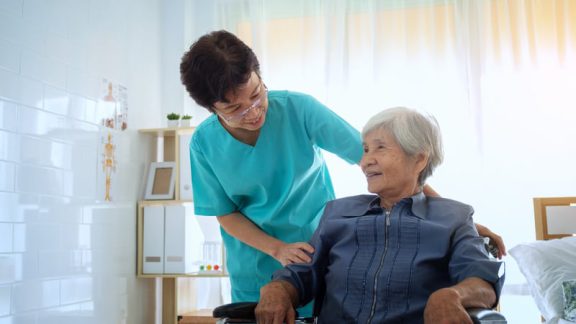We all get depressed every now and then, when things don’t go our way or when we think of the state of the world.
But usually this depression only lasts for a few hours and then we snap out of it and get on with our lives.
Unfortunately, we are now living in more stressful times than ever. The COVID-19 pandemic and the resultant shutdown of the country has had an impact on everyone – from isolating us from our family and friends to impacting our financial position.
All of this leads to anxiety and depression, and seniors have a harder time dealing with these emotions than do younger individuals.
According to a report by Mental Health America:
- Almost 70% of Americans 65 or over know “little or nothing” about depression. For example, that there are two kinds of depression: clinical (which is long-lasting and serious) and non-clinical.
- Only 42% of seniors that suffer from depression seek help from a health professional. Even fewer than that seek help from a mental health professional.
- Almost 60% of seniors believe it is normal for them to be depressed as they grow older – which is why so many of them don’t seek professional help.
The longer people suffer from depression, the less fulfilling their lives feel and the more unhappy they become.
Statistics show that while seniors comprise only 13% of the American population, they make up 20% of suicides – due in no small part to the fact that they have been suffering from undiagnosed clinical depression, a factor in most suicides.
So, what are some of the signs that your loved one is suffering from depression?
Stopping Activities That Once Gave Pleasure
If the senior used to like to paint, or draw, do jigsaw puzzles, or go for walks – and all of a sudden is no longer willing to do this activity – that could be a major sign.
Ask them why they’ve stopped. Are they having difficulty seeing, which prevents the activity? Or do they just not “feel like it;” this could be among the signs of depression if it happens more than one or two times.
Loss of Appetite, or Extreme Increase in Appetite
People deal with depression in different ways. In some, it causes a lack of appetite. In others, it causes binge eating – and usually of sweets. If you notice your senior getting thinner, or increasing in weight, have a conversation about their eating habits. (There are other reasons for sudden weight loss or weight gain, so it’s important to communicate to see if eating habits have changed. If they haven’t, there may be a medical reason.)
Oversleeping May Be One of the Signs of Depression
Our sleeping habits tend to change as we age, with seniors usually getting less sleep or having “wakeful” periods. If your senior loved one sleeps constantly or spends all of his or her time in bed, this could be a sign of depression.
Feeling Hopeless or Despairing About the Future
Communication with your senior – or with any loved one – is important. Discuss with them what they do on a daily basis (if they live in another city or state) and what their plans are for the next day or the next week. If they say they have no plans, and refuse any of your suggestions, it may become clear to you that they do not feel confident about the future.
At this point it may be wise to suggest that your loved one visit a mental health professional – or at least a therapist. Most cities have senior service organizations that can provide a counselor at little or no cost to the patient.
For more information, and to learn how to distinguish between grief (at the loss of a spouse, perhaps) and depression; risk factors; and how to get help, see the National Institute of Mental Health’s page on Older Adults and Depression.




